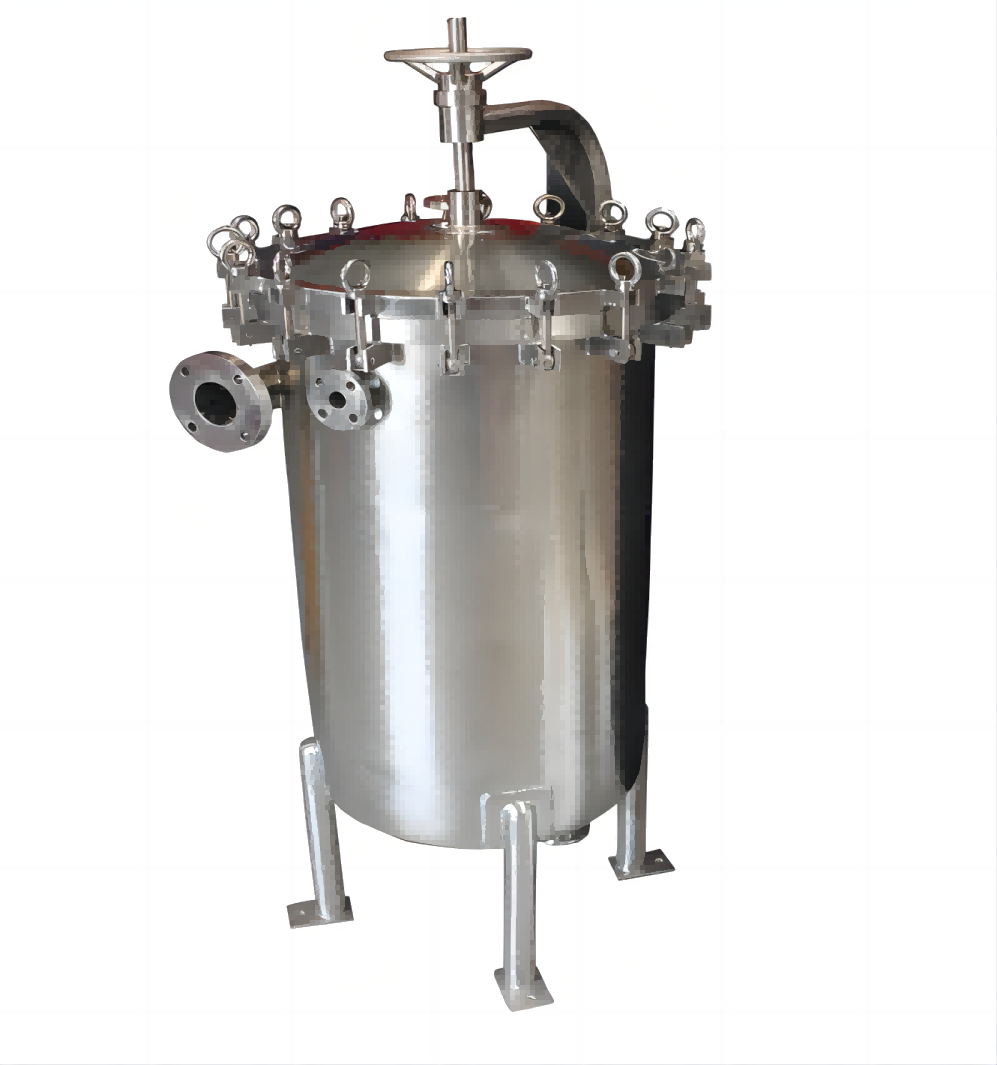In the world of craft beer, quality is everything. Craft brewers pride themselves on creating unique, flavorful brews that stand out in an increasingly competitive market. Behind every great beer is not just the right recipe and ingredients, but also a careful, well-planned production process—where filtration plays a vital role. Choosing the right filtration system can significantly impact your beer's clarity, flavor stability, and shelf life.
If you're setting up a new craft brewery or looking to upgrade your existing filtration process, this article will walk you through everything you need to consider when selecting the right filtration equipment.
Why Filtration Matters in Craft Brewing
Before diving into equipment types, it's important to understand why filtration is crucial.
Filtration is the process of removing unwanted solids, yeast, proteins, and other particulates from beer. These materials can cause haze, affect taste, or reduce the stability and shelf life of your product. A well-filtered beer is not only visually appealing but also more consistent and stable during storage and transport.
For many craft breweries, especially those producing bottled or canned products, filtration is essential to meet quality expectations and regulatory standards.
Different Stages of Filtration in Brewing
Beer filtration is typically carried out in several stages, depending on the production scale and the desired product clarity. Here's a breakdown of the most common stages:
1. Pre-Filtration
This is often done after fermentation to remove coarse solids such as spent yeast and hops. Systems used here include:
DE (Diatomaceous Earth) Filters
Plate and Frame Filters
Cartridge Filters
2. Fine or Polishing Filtration
This stage enhances clarity and removes fine particulates. Equipment used includes:
Cartridge Filters with finer pore sizes (e.g., 1–5 μm)
Bag Filters
3. Sterile Filtration (Optional)
Some breweries—especially those not pasteurizing their product—opt for sterile filtration using membranes of 0.45 μm or even 0.2 μm, to remove microorganisms.
Types of Filtration Equipment for Craft Breweries
Let’s explore the main filtration technologies used in small and medium-sized craft breweries:
1. Cartridge Filters
Best for: Pre- and fine filtration
How it works: Uses replaceable filter cartridges (made of PP, PES, etc.) with various pore sizes
Pros:
High clarity
Easy to operate
Low maintenance
Suitable for smaller batches
Cons:
Cartridge replacement cost
May require pre-filtration if turbidity is high
2. Bag Filters
Best for: Pre-filtration, coarse solids removal
How it works: Liquid flows through a filter bag where solids are trapped
Pros:
Economical
Quick bag changeover
Suitable for high-volume flow rates
Cons:
Limited precision
Bags need frequent replacement in high-solid applications

3. Plate and Frame Filters
Best for: Traditional craft brewing, coarse and fine filtration
How it works: Beer flows through filter sheets held in a press
Pros:
Flexible (can use different media types)
Can achieve high clarity with correct setup
Long industry history
Cons:
Labor-intensive
Difficult to automate
Needs more cleaning and maintenance
4. DE (Diatomaceous Earth) Filters
Best for: High-volume filtration of turbid beer
How it works: Beer passes through a layer of DE powder that traps particles
Pros:
Effective for large volumes
High clarity output
Cost-effective over time
Cons:
Requires trained staff
DE disposal and handling can be a concern
May not be suitable for very small breweries
.jpg)
Key Factors to Consider When Selecting a Filtration System
Every brewery has unique needs. Here are the most important criteria to evaluate:
1. Production Volume
A system for a 500L/week nanobrewery will look very different from one producing 5000L/day. Estimate your daily and monthly filtration requirements.
2. Beer Styles
Some beer styles (e.g., hazy IPAs, wheat beers) are intentionally unfiltered. Others like lagers and pilsners benefit from brilliant clarity. Decide which styles you’ll filter and how much clarity is expected.3. Desired Filtration Level
Do you need only rough filtration, or will you go for microbial stability (0.2–0.45 μm)? The finer the filtration, the more specialized (and expensive) the equipment.4. Automation and Labor
How much manual labor is acceptable in your operation? Cartridge and bag filters are more plug-and-play. DE and plate filters require more skilled handling and maintenance.5. Budget
Don’t just consider the purchase cost—look at consumables (filter bags, cartridges, DE powder), cleaning costs, and labor. A cheaper system may cost more over time if consumables are expensive or replacements are frequent.6. Cleaning and Hygiene
Can the filter be easily integrated into your CIP (Clean-in-Place) system? Hygienic design is crucial to prevent contamination, especially if you're doing sterile filtration.Soft Tips: Choosing With Future Expansion in Mind
One common mistake new brewers make is buying a system that meets only their current production. But if you're growing fast—or planning to—choose a filtration setup that can be modular or scaled up.For example, cartridge filters can be fitted with multi-core housings. You can start with a 3-core model and later upgrade to a 7-core or 10-core system as production increases.
Similarly, if you’re using a bag filter, ensure the unit’s pressure and flow capacity can handle higher throughputs in the future.
Case Example: A Small Brewery Upgrades Its Filtration
A 1000L/month craft brewery started with only coarse bag filtration to remove spent hops and yeast. As they expanded into canning and longer shelf life products, haze complaints started increasing. After consulting with equipment specialists, they installed a two-stage system: bag filter + 0.45μm cartridge filter, and the result was:Better clarity
Longer shelf life
Reduced customer complaints
Minimal extra labor due to quick-change filter design
They also chose a quick-opening housing design, allowing for easy cleaning and cartridge changes between batches—critical for a multi-style brewery.
Final Thoughts
Filtration might not be the flashiest part of brewing, but it's one of the most important. Choosing the right filtration system is about more than just removing haze—it's about product quality, consistency, and brand reputation.Whether you go with a simple bag filter or a full sterile filtration setup, always choose a system that fits your production goals, beer styles, and future growth. Consult with equipment suppliers who understand craft beer and can customize a solution for your specific needs.
Investing wisely in the right filter system today ensures that every pint you serve tomorrow reflects the craftsmanship you put into it.
TIANTAI turnkey brewery plants offer innovative solutions and cutting-edge technology to help you achieve your brewing dreams. With Tiantai you can trust that your brewery project will be in expert hands from start to finish. As a general contractor, Tiantai supplies turnkey solutions for the entire brewery. We manufacture precisely matched brewery systems developed according to energy and economic aspects. With our decades-long experience in integrative systems construction, we have successfully completed a multitude of turnkey projects all around the globe.
Helen Lee
Sales Manager
[email protected]


.jpg)
.jpg)
.jpg)


Get In Touch